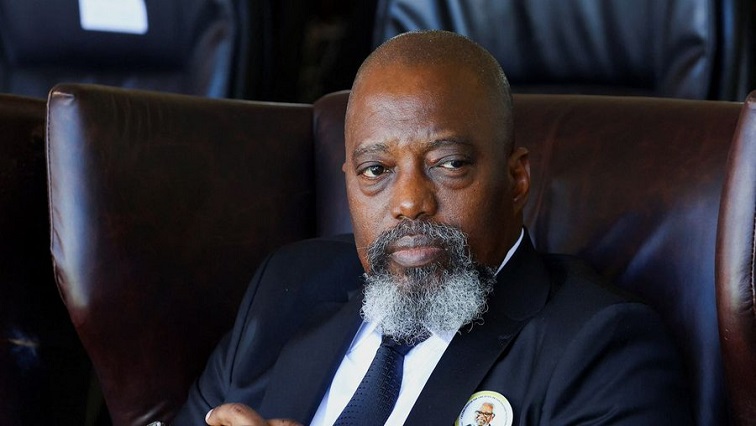
Kabila reportedly arrives in Goma, which is under M23 authority
Joseph Kabila, the former president of the Democratic Republic of the Congo, reportedly landed in Goma on Friday, April 18, ten days after declaring his intention to return to the country following six years of exile and quiet.
Kabila announced in early March that he had halted his studies in South Africa in order to “deal with the worsening situation,” in eastern Democratic Republic of the Congo, where a government coalition has been engaged in combat with the AFC/M23 rebels for more than three years. The key cities of Goma and Bukavu are currently under rebel control.
According to RFI, which cited people close to the former president, Kabila, whose family has accused the Congolese government of abuses, is scheduled to speak to the country from the rebel-controlled capital of North Kivu region on Friday.
Felix Tshisekedi, his successor, has been accused by the immediate past president of mishandling the security situation and of bringing the large nation “close to imploding.”
Kabila has previously been charged by Tshisekedi with supporting the AFC/M23 rebels.
The former president’s wife, Marie Olive Lembe, accused security forces of “persecution” after they recently raided his Kinshasa home. RFI quoted her as stating that the agencies “came looking for weapons.” “They stole solar panels, generators, cars, everything!”
According to the French radio, a military police seizure report verified the confiscation of a number of cars, batteries, generators, and a batch of solar equipment.
Based in Zimbabwe and South Africa, Kabila announced on April 8 that he would be going back after meeting with Congolese politicians and other regional presidents and past presidents. He had stated that he would travel back to his homeland via the unstable eastern region, which has been unstable for thirty years.
The French outlet quoted him as saying, “I chose to begin with the eastern part, because there is danger there.”
Recently, Kabila has expressed concern about the continued instability in the Democratic Republic of the Congo, stressing the significance of domestic solutions to issues facing the country.
He has made it clear that only internal Congolese diplomacy can end the war with the rebels, who Tshisekedi claims receive help from Rwanda.
Tshisekedi’s propensity to attribute the situation to outside forces and outsource security by employing foreign armies and European mercenaries was condemned by him. In order to resolve the problem, he exhorts Congolese authorities and residents to assume responsibility.
After leaving office in 2019, Kabila has not spoken until February of this year. Corneille Nangaa, the former head of elections for the Democratic Republic of the Congo, is the leader of the Alliance Fleuve Congo (AFC), which Tshisekedi has accused Kabila of supporting. Kabila denied the claim in March, claiming that if he had been directly involved in the conflict, it would be different.
The AFC/M23 rebels captured Goma, the provincial capital of North Kivu, in January, and then gained control of Bukavu, the city of South Kivu, in mid-February, which intensified the fighting in eastern DR Congo.
The M23 rebels are part of the rebel alliance, which has garnered greater Congolese backing since the start of 2025 as more entrepreneurs and political figures have joined the fight.
Several armed organizations, together with government troops and police, have joined the rebels in their campaign to defend Congolese Tutsi towns that have endured decades of ethnic violence.
In addition, the AFC/M23 rebels denounce the pervasive corruption and poor leadership that have made the mineral-rich nation unmanageable.
On April 10, the Congolese government and the rebels had their first direct discussions since the M23 insurrection sprang back to life in late 2021 after over ten years of dormancy in Doha, Qatar.
All Categories
Recent Posts
Tags
+13162306000
zoneyetu@yahoo.com



